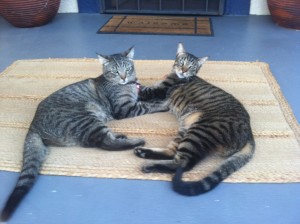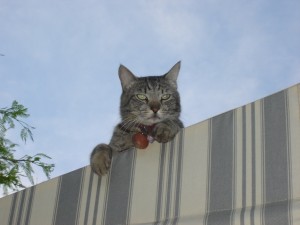Before I discuss this touching, beautifully written book, I’d like to cite a quote from a book review I happened to read at the same time I was reading Hard Road Home. It was an excellent review of Frank Dikoetter’s new book on the Chinese revolution, The Tragedy of Liberation: A History of the Chinese Revolution, 1945-1957. It offers this excerpt:
By the beginning of 1948, when the pressure abated, some 160 million people were under communist control. On paper the party determined that at least 10 percent of the population were “landlords” or “rich peasants.”… The statistical evidence is woefully inadequate, but by a rough approximation between 500,000 and a million people were killed or driven to suicide….
By the end of 1951, close to two million people had been murdered.
I cite this because in this new book of essays, author Ye Fu tells the story of those unfortunate enough to be among China’s landlord and rich peasant classes after Mao’s “liberation,” and how they and their families suffered. It is about much more than that, namely the effort of a contemporary Chinese man to explore his family’s past, but it is the references to the extermination of the landlord classes that are among the most vivid in the book. As translator A. E. Clark tells us in the preface, “An arduous journey drives the classical epic, and the protagonist’s goal is often an apparently modest one: to recover his place and establish his roots.” Mr. Clark reminds us, however, that the epic journeys are wracked with hardships, as in the stories of Odysseus and Aeneas. “It’s a hard road that takes them home.” And so it is for Ye Fu.
The ten-year period following the end of the revolution is commonly referred to as “the golden age,” a time when the Chinese Communist Party issued reforms and the country flourished, a period soon to be upended by the Great Leap Forward and the Cultural Revolution. The Ian Buruma review I reference above (please read it) debunks this rosy image, as do Ye Fu’s essays, which calmly but clearly depict a country ripped asunder by a new government intent on slaughtering entire classes of its citizens. Again, from A.E. Clark’s preface:
Though his accounts of China’s epoch of war and revolution and convulsive tyranny can be harrowing, Ye Fu seeks to illuminate, not to emote or shock…. He wants to identify the inhumane values that sprang from and sustained a regime of power without accountability.
Nearly all the family members Ye Fu introduces us to eat a lot of bitterness. His mother tries desperately to escape the ties to her father, an officer in the Nationalist army, but with no success. She is labelled a rightist and her home is vandalized, characters identifying her as a class enemy sprayed on their door. She will not be rehabilitated for 20 long years, she and her own mother always suffering with “the taint that caused them tribulation the rest of their lives.” Ye Fu himself spends four years in prison for his participation in an undercover pro-democracy group following the crackdown on Tiananmen Square. Prior to that he worked as a police officer where he witnessed the torture of suspects and prisoners. Yet despite its focus on man’s inhumanity to man, sometimes brutal beyond words, the book is never bombastic; mournful might be the best word to describes its tone. Ye Fu recounts the horrors of the landlords’ extermination and the Cultural Revolution in a calm, dignified voice, full of compassion for those who suffer, and full of sorrow at the chipping away of traditional Chinese values, both under Mao, and later as China opens up and classical values take a lowly place below making money.
My most vivid memory of the book, along with the tender, loving recollections of the life of Ye Fu’s maternal grandmother, is the heartbreaking death of his paternal grandfather who was the wealthiest (i.e., least poor) peasant in his village. He is respected, even beloved by the villagers for his role as a benevolent village leader, arbitrating disputes between villagers and playing a role similar to a town mayor. Mao’s land reform campaign of persecution, and finally extermination, against landlords and “rich peasants” was an early step in unraveling the glue that held society together and heralded what would become the disintegration of traditional Chinese values. I’m sure not all landlords were saintly, but they certainly did not deserve their fate. The dividing of society into different classes, like landlords and rich peasants and poor peasants, paved the way to state-sanctioned barbarism.
In a society founded on an appeal for justice and freedom, people were divided into various grades and ranks, and the highest authorities purposely created opposing camps and fomented hatred to open a chasm between each man and his neighbor, setting them against each other. Of the traditional values — humaneness, righteousness, decorum, and trust — nothing remained. The irreducible principles of ethics were gone. Everyone joined to exalt the Wicked, the False, and the Ugly, taking poverty for excellence, and the entire society seethed in an atmosphere of rapine and violence.
Cruelty was institutionalized as children were taught in class how to inform on their family, friends and neighbors. Ye Fu’s grim recollections from this golden age of liberation, and later of the Cultural Revolution, are beautifully told, and constantly made me wonder what China would have been without Mao (a fruitless task, I know). But the book is much more than a recounting of the catastrophes that came with “liberation.” Some of the most touching moments deal with the author’s relationships with friends and teachers and others from the village where he grew up. One particularly poignant story recounts Ye Fu’s reunion with a blind old man he hasn’t seen in ten years. On his return to the village, he spots him on a bridge playing the castanets.
Turning toward the sound I saw none other than Brother Blind Man leaning on a weathered bamboo walking stick. He stood relaxed at the end of the bridge, swinging the two clappers in an easy-going rhythm. He sang no song and uttered no plea, apparently unconcerned about receiving any money for his performance. His stillness suggested a transcendent disdain for the clamorous world around him. He had the demeanor of a sage of ancient times who had been waiting there for years to direct some gentleman who had truly lost his way.
It is a book about love and humanity as well as suffering. It calls to life one of China’s most terrible periods and puts it in intimate, human terms. And the writing is always poetic. For this, major kudos are due to the translator, A.E. Clark, who has done a masterful job not only in translating Ye Fu’s essays but also in supplying a wealth of footnotes that throughout the essays give the reader context and explain references to Chinese expressions, institutions, historical events, etc. Three years ago I wrote a detailed review of another book Mr. Clark translated, Such is this World@SARS.come. There too, I could only look on the notes with a sense of wonder, so meticulous is Mr. Clark in supplementing readers’ enjoyment of the book with footnotes that provide valuable context and perspective, and that are a pleasure to read.
The publisher of this book of Ye Fu’s essays, Ragged Banner Press, is a small one that depends on word of mouth to support its sales and marketing. I am proud to contribute what I can to this cause. I urge you to order your copy at this website, where you can also read one of the essays in its entirety. If you enjoy it as much as I did, please tell a friend.
It is a tired cliche to call a book “unforgettable,” but there are scenes and images in Hard Road Home I know I will never forget. These essays fill an important gap, giving us a snapshot of this tumultuous period as seen through the eyes of a villager from the countryside. It is an exquisite book, an infuriating book, a touching and at times heart-warming book. Please get yourself a copy.


Comments